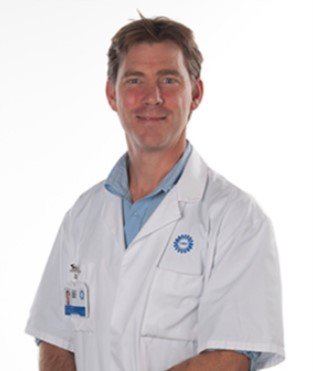Moyo Kruyt assigned as professor of Reconstructive Skeletal Engineering
We are happy to announce that as of January 2021 one of our RM Kernteam members, Moyo Kruyt, has been assigned as professor of Reconstructive Skeletal Engineering at the department of Developmental Bioengineering (DBE) at Twente University. This appointment is part of a long-standing relationship between the Orthopedics Department of UMC Utrecht and Twente University.

UT-UMCU alliance
At the Orthopedics Department of UMC Utrecht, extremely complex and difficult cases are treated on a regular basis. To allow such treatments, new technical solutions or adjusted standard treatments are often needed. At the same time, advanced technological innovations are the core business of the biomedical departments at Twente University. In his position as a clinical professor of Reconstructive Skeletal Engineering, Prof. M. Kruyt will be the liaison between those clinical needs and technical solutions.
Research lines
Moyo Kruyt is an orthopedic surgeon at UMC Utrecht and specialized in spine surgery, specifically pediatric spine (scoliosis). He has an extensive background on bone tissue engineering which was the subject of his thesis in 2003. In the last decades, clinical research on regenerative bone formation gradually drifted from cell-based to cell-free techniques. This happened because clinically useful cell-based strategies appear close to impossible, whereas cell-free techniques advanced enormously due to the momentum of tissue engineering research. Kruyt’s group investigated and optimized microporous ceramics as stand-alone bone substitute in many preclinical and clinical trials. His team was the first to show efficacy of these ceramics as bone graft alternative for spinal fusion in a large RCT.
The focus of this research line will be to further improve the ceramics to ultimately outperform autologous bone. These bone-boosting efforts are part of the iBone project, funded by Health Holland, that investigates the use of pro-inflammatory stimuli.
A more recent focus of regenerative research is at reconstruction of the scoliotic spine in growing children. For this purpose, unique dynamic implants have been developed. These implants consists of spring-loaded devices that can give strategic force to the growing spine. Several clinical trials are ongoing, focusing on valorization. Last year, an NWO OTP grant was obtained for fundamental research into force effect relationships of these dynamic approaches.

